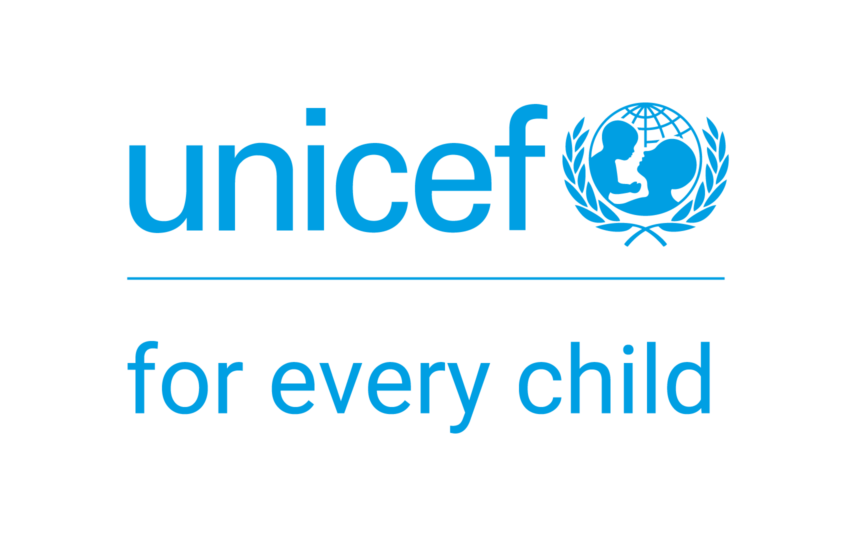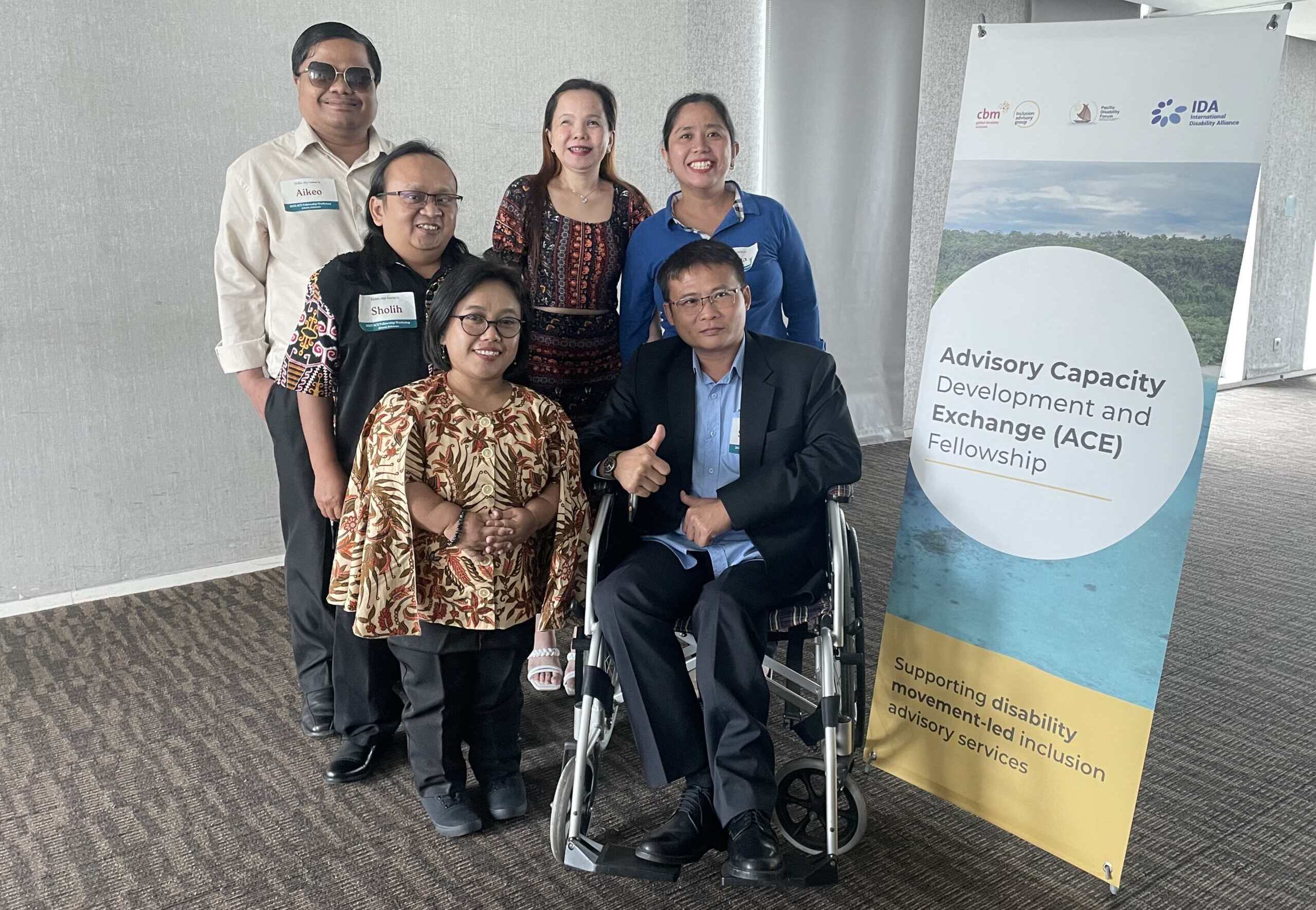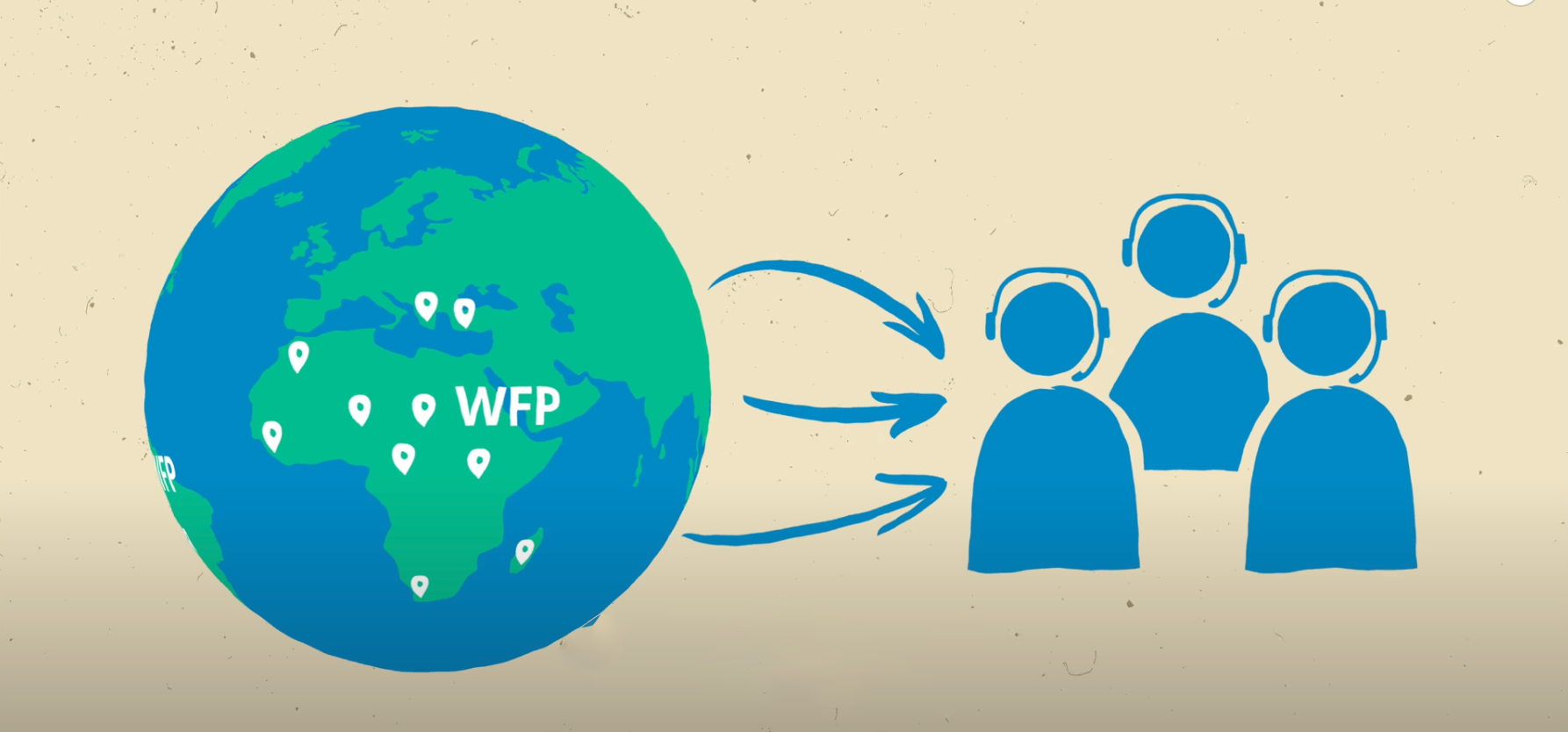WFP Disability Inclusion Helpdesk: Improving practice through on-demand technical support
News-iag, Project | April 24, 2023
In September 2021 the World Food Programme (WFP) and our Inclusion Advisory Group (IAG) launched a Helpdesk to enable WFP employees around the world to access timely, tailored, practical advice on improving disability inclusion in their programmes.
A new Learning Brief from WFP and IAG provides an overview of the Helpdesk, gives examples of its contribution to changes in WFP’s practices, and summarises key lessons from its operation and the broader partnership between WFP and IAG.
In a recent survey, 92% of users surveyed said they would use the Helpdesk again and recommend the service to colleagues.
About the Helpdesk
The Helpdesk provides on-demand, confidential, technical advice on disability inclusion which is tailored to the needs of WFP’s programme teams. The Helpdesk is managed by IAG using an online platform, where any WFP employee can register using their existing WFP credentials and submit a request by filling in a simple form.
As of December 2022, IAG advisors have solved 63 Helpdesk requests from WFP offices in 26 countries.
IAG aims to respond to all requesters within three days. Some requests are solved within a few days, other may require further dialogue, multiple products, and ongoing support over a much longer period.
85% of users surveyed said that the assistance supported them to improve disability inclusion in their programme.
What have we learned?
Helpdesks can enable institutional change
The unique advantage of a general Helpdesk facility is the capacity to provide support at short notice in response to a wide range of requests. This gives confidence to leaders within regional bureaus and country offices to set more ambitious commitments. It also enables WFP’s HQ Disability Inclusion Team and Regional Advisors to dedicate more of their time to systems change and capacity building.
Mandate and motivation of Helpdesk users is crucial
A Helpdesk facility can also contribute to practical improvements to knowledge, behaviours, procedures, as well as programme design and delivery but only if its users have sufficient motivation, mandate and time to implement the advice themselves and to influence the practices of their colleagues. Requests which seek ongoing support for the implementation of a strategic plan will yield the highest results because they have buy-in from leadership and the technical support can be timed to have maximum value.
Impact requires collaboration and ongoing support
Helpdesk advice is more relevant if the requester is willing to engage in a dialogue about their needs and context. Such a collaborative approach enables Helpdesk Advisors to learn how to adjust their advice and written products to ensure they are fit-for-purpose. This approach often leads to ongoing support which is necessary to achieve change in front-line practices.
Advisors require opportunities to learn and improve
Before the Helpdesk was launched, IAG and WFP provided extensive briefings for Helpdesk Advisors. It is important to continue providing opportunities for Helpdesk advisors to develop their understanding of WFP’s programming and procedures. This includes field visits to provide exposure to the realities of WFP field programmes.
Engaging OPDs requires relationship building
OPD engagement is a high priority for WFP. The Helpdesk supports WFP to collaborate with OPDs. For example, the Learning Brief describes a partnership between WFP Indonesia and a national OPD called OHANA. This was supported by the Helpdesk and is an example that could be emulated in other locations. These partnerships can create opportunities for meaningful participation of persons with disabilities in WFP’s programming, but they require a strategic capacity exchange approach to build trust.
“The Helpdesk is so valuable because the IAG advisors can react quickly with practical and tailored written advice to WFP’s programme teams as well as provide capacity building support over a longer period. The Helpdesk is a crucial part of WFP’s efforts to implement the UN Disability Inclusion Strategy and IAG is an essential partner.” Kavita Brahmbhatt, Senior Disability Inclusion Advisor, WFP
Next phase
In the next phase of the partnership between IAG and WFP will prioritise the following:
- Continue the provision of reactive advice
The Helpdesk will continue to be available for all WFP programme employees. WFP and IAG will conduct targeted outreach to promote the Helpdesk to users who are best placed to use its advice.
- Provide proactive support to Regional Bureaus and Country Offices
IAG will provide more intensive and targeted support to the WFP Regional Bureaus and Country Offices who commit to developing and implementing their own Disability Inclusion action plans.
- Facilitate further OPD engagement in the provision of advisory support to WFP
IAG is collaborating with the African Disability Forum to enable its national OPD members to forge relationships with WFP Country Offices and provide advisory support themselves.
For more information
- View and download the new Learning Brief
- Read our article ‘World Food Programme Disability Inclusion Helpdesk‘
- Read our article ‘Supporting the World Food Programme – six months in‘
- Contact us at IAG@cbm-global.org
https://cbm-global.org/news-iag/world-food-programme-disability-inclusion-helpdesk-improving-practice-through-on-demand-technical-support
Related Projects

Partnering with UNICEF to support disability inclusion
CBM Global’s Inclusion Advisory Group (IAG) supports UNICEF Australia and Headquarters staff to embed...

Six disability-movement changemakers celebrate the conclusion of advisory fellowship in SE Asia
Image description: (L-R) ACE Fellows Aikeo Koomanivong, Lao PDR,...

WFP disability inclusion helpdesk: 120 solved requests and counting
Since September 2021, CBM Global’s Inclusion Advisory Group (IAG)...
